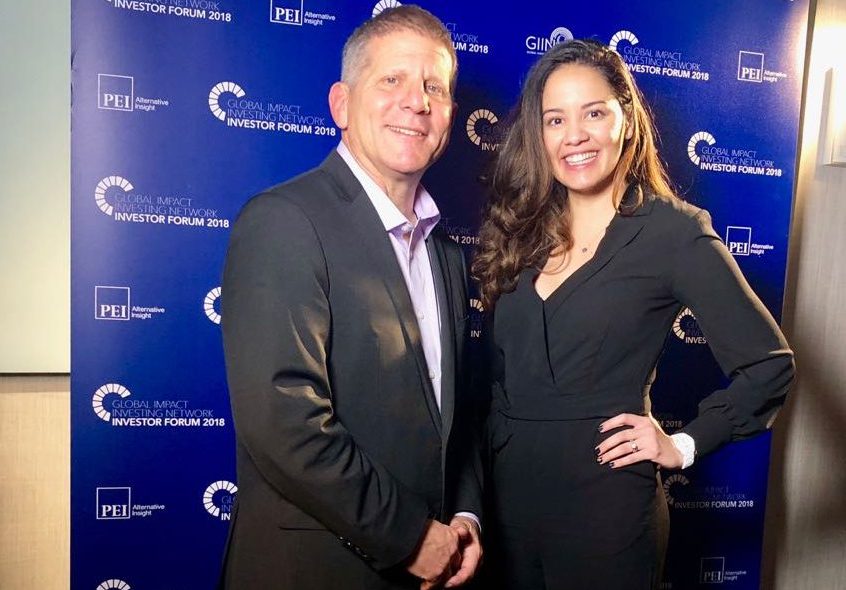In its daily Brief and on its website, ImpactAlpha writes a lot about the challenges and triumphs of impact entrepreneurs. In this week’s Returns on Investment podcast, host Brian Walsh put the questions to the company’s own mission-driven entrepreneurs: How’s the business going?
“I got into this as a journalist,” editor and CEO David Bank said. “It turns out you have to build a revenue model and a business model as well. We’ve finally gotten there with the subscription model we launched about six months ago.”
Paid subscriptions, an old media model that has found new life in the face of a difficult digital advertising environment, are particularly suited to specialty publications like ImpactAlpha. With a daily Brief, ImpactAlpha.com, the Returns on Investment podcast and Agents of Impact conference calls, the media platform covers the growing impact investing industry, which is still small relative to the broader capital markets.
Co-founder Zuleyma Bebell cited the potential for growth among “people looking for information to do their job better. We give people an opportunity to see how they can fit into the space.”
Subscriptions also align the publication directly with its audience, who have to decide whether the overall value is worth the price, Bank said. “Editorial drives the business, in a very good, organic way,” he said.
“The more and the better stories we write, the better the content, the more value we provide, the more people come to the site and sign up and some of them actually give us their credit cards and subscribe,” he said. “Conversely, the better business we have, the better editorial we can produce. We put more reporters on the beat and everybody gets a higher value product for the same price.”
Agents of Impact
The most successful media brands offer more than information: they embody the shared identity of their audience. Just as Wired magazine in the 1990s signaled membership in a cutting-edge digerati, or Ms. magazine in the 1970s encapsulated the women’s movement, ImpactAlpha seeks to reflect the growing movement of “Agents of Impact,” said Bebell, ImpactAlpha’s director of operations.
“This is a community that has come together and is looking for a place to share their ideas and their projects and their products,” she said. ImpactAlpha has featured Impact Voices guest contributions from dozens of impact investing practitioners, and produced multiple Series with leading organizations in the field.
She said subscribers include entrepreneurs, traditional investors, asset owners and managers, banks, family offices, foundations, students, development finance institutions. “They’re all part of our Agents of Impact reader base.”
“It’s not just ‘How do I make my investments align with my values?’” Bank added. “That’s obviously part of it. But what we’re trying to track, and what everybody wants to feel part of, is something much bigger going on with the transformation of finance around valuing social and environmental impact. They all know that no one player, is going to be able to do that by themselves. They’ve got to all be working together.”
Walsh, the head of impact for the fintech company Liquidnet (and, in full disclosure, an investor in ImpactAlpha through the Liquidnet for Good fund), asked about possible tension between ImpactAlpha’s role as a proponent of impact investing and its journalistic duty to hold players accountable.
“It is a bit of advocacy journalism. I’ll own that,” Bank said. “But it’s advocacy to hold people accountable. It’s a sign of a mature marketplace that it can take scrutiny and accountability.”
Catch up on all of ImpactAlpha’s Returns on Investment podcasts.











